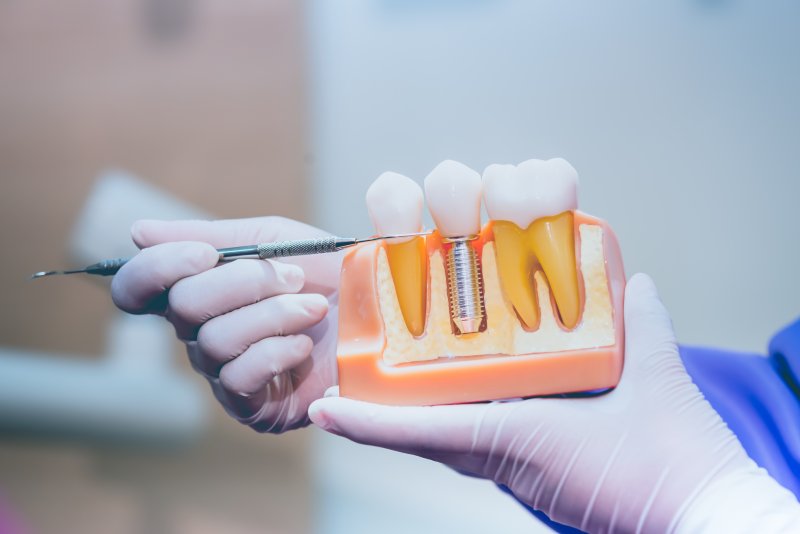
Adopting good oral hygiene habits at home is important no matter if you have a full set of natural teeth or artificial ones. Dental health issues of all kinds can form over time, causing pain, inflammation, and problems throughout the mouth and body. For patients with permanent dental prosthetics, one of the biggest questions remains, “Can dental implants get cavities?” To answer this question, a team of dentists explains why although these teeth can’t decay, practicing good dental habits is essential.
Do I Need to Worry About Cavities with My Dental Implants?
No, you do not need to worry about cavities forming in your dental implants. The reason is that the posts are made of titanium, and the crown is often zirconia or porcelain. The materials used to create your new smile are not porous. This means that it cannot be penetrated by bacteria like regular tooth enamel.
However, just because these artificial teeth cannot experience decay does not mean the rest of your smile can be left untreated. If you have any natural teeth remaining, they can still experience cavities if you are not regularly brushing, flossing, and rinsing. There is also the possibility of gum disease, which is detrimental to dental implants.
If gum disease is left to form and progress, it can cause these prosthetics to fail while also damaging existing bone and causing natural teeth to loosen. If the infection reaches the bloodstream, it can cause problems to form throughout the body as well.
What Tips Can I Use to Ensure the Health of My New Smile?
If you want to make sure that your new teeth remain in place for decades or even the rest of your life, you’ll need to make sure that you’re being proactive about your oral health and hygiene. This means:
- Brushing after every meal with fluoridated toothpaste as well as in the morning and at night.
- Flossing to remove bacteria between teeth. You can opt for traditional dental floss or a water irrigator if that is more comfortable.
- Rinsing with an antimicrobial mouthwash.
- Stopping the use of tobacco products and smoking.
- Giving up bad habits that can damage your dental implants (i.e., eating ice, biting your fingernails, etc.).
- Eating a healthy diet that limits sugars and starches.
Keeping your dental implants in good shape doesn’t have to be hard. All you need is to commit to caring for your new smile so that you can enjoy it year after year.
About the Authors
Dr. Aaron Swingdorf is a dentist in Chaska who believe in the power of preventive care. Helping patients take better care of their teeth and gums extends beyond the confines of our dental office. Offering tips and recommendations to use while caring for smiles at home, our team can help patients become motivated to take better care of their smiles year-round. If you would like to learn more, contact us at (952) 448-4151.
We used the following sources to generate this particular blog article, some of which include:









